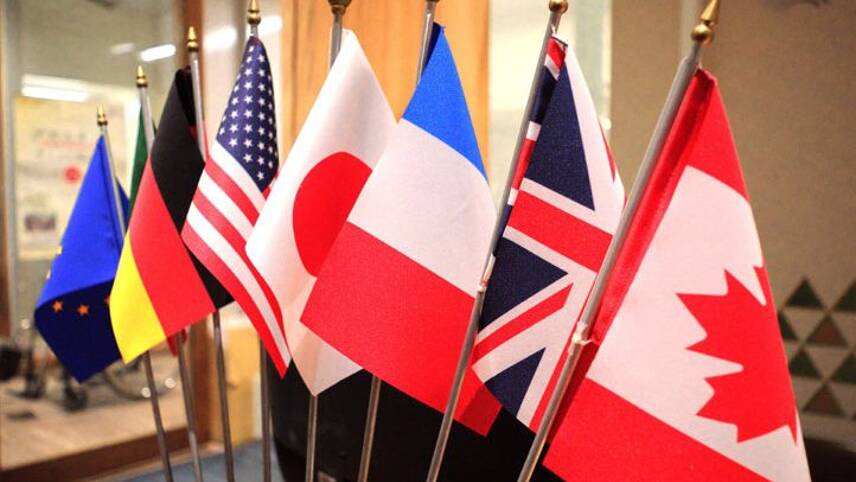Register for free and continue reading
Join our growing army of changemakers and get unlimited access to our premium content

The nations believe that gas can be used to ease cost prices
G7 nations met in Japan over the weekend to agree and build upon a set of commitments regarding the economy and responding to the climate crisis.
Discussions at the summit built upon a commitment from the nations to raise ambitions to decarbonise energy grids, deliver low-carbon energy for citizens by 2035 and cut funding for fossil fuels.
In the official communique G7 nations did reiterate this commitment, but stated that liquefied natural gas (LNG) would be required as a temporary solution to providing reliable and cost-effective energy relief across the globe.
“We stress the important role that increased deliveries of LNG can play, and acknowledge that investment in the sector can be appropriate in response to the current crisis and to address potential gas market shortfalls provoked by the crisis,” the nations stated.
“In the exceptional circumstance of accelerating the phase out of our dependency on Russian energy, publicly supported investment in the gas sector can be appropriate as a temporary response, subject to clearly defined national circumstances, if implemented in a manner consistent with our climate objectives without creating lock-in effects, for example by ensuring that projects are integrated into national strategies for the development of low-carbon and renewable hydrogen.”
While G7 nations including Canada, France, Italy and the UK, together with the European Union, were ready to build on their low-carbon commitments, reports suggest that Germany and Japan successfully lobbied for the continued use of gas temporarily.
edie’s content partner Euractiv reported that the German government has rejected criticism from green groups, which claimed that the G7 was “endorsing new fossil gas”. Euractiv claimed that the German government believes that investments are needed to get away from Russian gas and find a replacement.
Heading into the event UN Secretary General Antonio Guterres called on the G7 to respond to the current economic imbalances globally while addressing the climate crisis.
“While the economic picture is uncertain everywhere, rich countries cannot ignore the fact that more than half the world – the vast majority of countries – are suffering through a deep financial crisis,”
“Our Acceleration Agenda aims to make up for lost time. It calls for all G7 countries to reach net zero as close as possible to 2040, and for emerging economies to do so as close as possible to 2050.”
Prior to the event, a group of influential business leaders called on the G7 to double down on the low-carbon transition. Businesses from the Corporate Leaders Network (CLN), claimed that energy storage is a vital cog in global efforts to transition to clean energy grids and that cross-border cooperation can accelerate the market.
Last month, the We Mean Business Coalition wrote to world leaders, calling on them to deliver key climate commitments.
We Mean Business claims that the G7 can “help business go faster by facilitating investments in clean energy solutions” while also repurposing the $1trn spent on fossil fuel subsidies, noting that the climate crisis is currently expected to reduce global GDP by as much as 14%, or $23trn, by 2050.


Please login or Register to leave a comment.